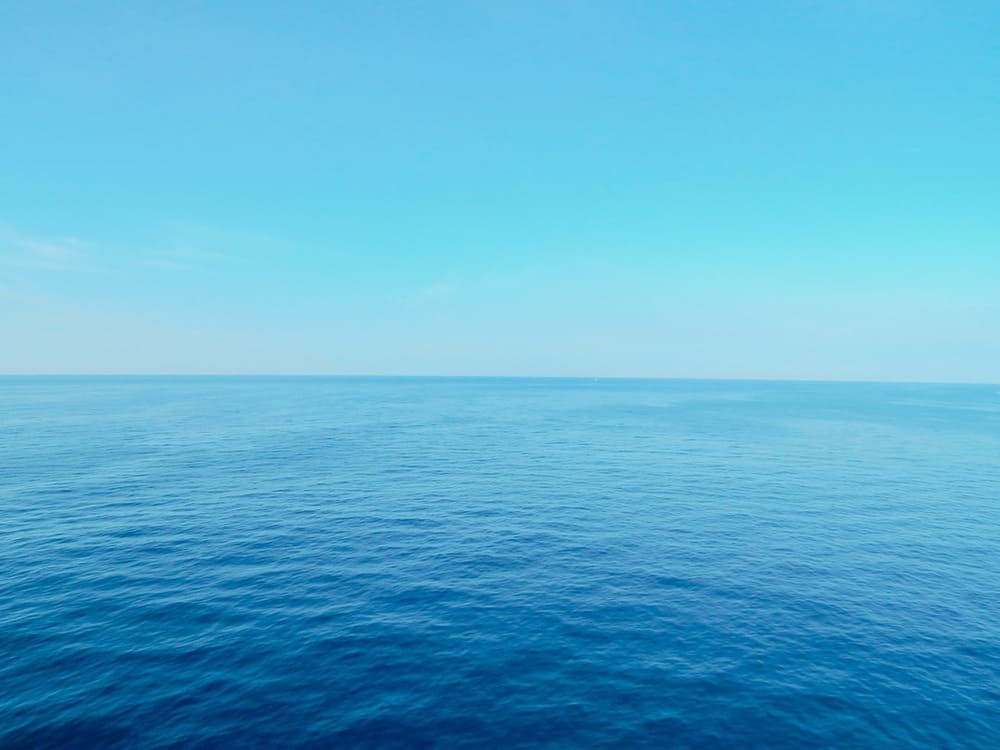You may have heard that drinking ocean water is dangerous and can make you sick. But what happens if you drink ocean water? And is it really as bad as people say?

In this blog post, we’ll take a closer look at the dangers of drinking ocean water and explore why it’s not recommended. We’ll also provide some tips for keeping yourself safe when in the ocean. So read on to learn more!
Can you get sick from drinking ocean water?
It is possible to get sick from drinking ocean water, although it is not very common. The main reason why someone might get sick from drinking ocean water is because of the high salt content. When the body ingests too much salt, it can lead to dehydration and other health problems.
Additionally, ocean water can contain harmful bacteria and viruses that can cause gastrointestinal illnesses. Therefore, it is generally not recommended to drink ocean water unless it has been properly treated or filtered.
Drinking ocean water is not recommended, as it can cause dehydration and sickness.
The salt content in seawater is 35 grams per liter, which is far higher than the recommended daily intake of salt for humans, which is only 2.3 grams. When you drink seawater, your body becomes confused and does not know how to process all of the salt.
Why is ocean water salty?
It all has to do with the Earth’s crust. The Earth’s crust is made up of rocks and minerals, which contain salt. When rain falls on these rocks, it breaks them down and washes the salt into the ocean. overtime, this process has resulted in ocean water that is about 3.5% salt.
Similarly, rivers carry salt into the ocean, adding to its overall saltiness. While this might not seem like a lot, it is actually enough to make the ocean one of the world’s most inhospitable environments for many types of plant and animal life.
In fact, most plants and animals cannot survive in ocean water because of its high salt content.
It’s a fascinating story that begins with water evaporating from the surface of the sea. As water evaporates, it leaves behind the salt that it contains. This process happens constantly, and over time, it has led to the accumulation of a vast amount of salt in the ocean.
In addition, rivers and streams carry small amounts of salt into the sea. And finally, some rocks on the seafloor are rich in minerals that dissolve easily in water, adding to the ocean’s salty character. Together, these processes help to make the ocean one of the most interesting and important places on Earth.
What happens if you drink ocean water?
Drinking ocean water is generally not a good idea. The salt content in seawater can cause dehydration and electrolyte imbalance, which can lead to nausea, vomiting, and cramping. In extreme cases, it can even lead to coma or death. Saltwater also contains harmful bacteria that can cause gastrointestinal distress.
Additionally, the high concentration of salt in seawater can damage the kidneys and other organs. So, while drinking a small amount of ocean water may not be harmful, it’s generally best to avoid it altogether.
The high salt content of ocean water will cause the body to lose water faster than it can take in, leading to dehydration. Vomiting and diarrhea are the body’s way of getting rid of the excess salt.
In severe cases, drinking ocean water can lead to shock and death. Therefore, it is important to only drink clean, fresh water when you are near the ocean.
Risks associated with drinking ocean water?
There are a few risks associated with drinking ocean water, the most common being gastrointestinal illness. This can occur when viruses, bacteria, or other microorganisms contaminate the water and are ingested.
Such contaminants could come from sewage spills, stormwater runoff, animal waste, or even infected swimmers. Symptoms of gastrointestinal illness include vomiting, diarrhea, and cramping.
Another risk of drinking ocean water is contracting an intestinal parasite. These parasites can enter the body through contaminated food or water and then live in the intestines, where they feed off blood or other nutrients.
Intestinal parasites can cause a variety of symptoms including abdominal pain, diarrhea, weight loss, and fatigue. In some cases, they can even lead to death.
Finally, drinking ocean water can also lead to dehydration. This is because the salt content in ocean water can cause the body to lose more water than it takes in. Dehydration can lead to a variety of symptoms including thirst, fatigue, lightheadedness, and fainting. If not treated promptly, it can even be fatal.
So while there are risks associated with drinking ocean water, they can largely be avoided by using good judgment and common sense. Only drink ocean water if you are sure it is clean and safe, and be sure to stay hydrated by drinking plenty of fresh, clean water as well.
Can you drink ocean water if you boil it?
Most people know that it’s not a good idea to drink ocean water. After all, it’s full of salt and other minerals that our bodies aren’t designed to process. However, many people don’t realize that it’s actually possible to drink ocean water if it’s properly filtered and treated.
Boiling is one way to filter ocean water, and it also helps to kill any harmful bacteria that may be present. Of course, boiling alone won’t make ocean water safe to drink, but it’s a good first step.
Once the water has been boiled, it can be further filtered using a coffee filter or a similar device. With proper treatment, it’s possible to turn ocean water into safe drinking water.
While it’s certainly possible to purify seawater by boiling it, it’s not the most effective method. Boiling water will kill bacteria and other microorganisms, but it won’t remove dissolved minerals, salts, and other pollutants.
As a result, boiled seawater will still taste salty and may even have a slightly briny odor. Additionally, boiling requires a significant amount of energy, making it impractical for large-scale desalination projects. There are many other methods of purifying seawater that is more efficient, including reverse osmosis and distillation.
However, all of these methods come with their own set of challenges, so there is no perfect solution for making seawater safe to drink.
How long can you survive drinking seawater?
In theory, you could survive indefinitely by drinking seawater. However, in practice, it would be very difficult to do so. The human body is not designed to process salt, and too much salt intake can lead to dehydration and a host of other medical problems.
Additionally, seawater contains many other pollutants that would quickly make you sick if you drank it on a regular basis. For these reasons, it is generally not recommended to drink seawater unless you have no other choice.
If you find yourself in a situation where you must drink seawater, it is best to do so only in small amounts and to supplement your intake with freshwater whenever possible.
By following these guidelines, you can minimize the risk of serious health complications and increase your chances of surviving for a longer period of time.
Conclusion
If you’re ever feeling adventurous and decide to drink ocean water, know that you’ll likely be taking on more than just salt.
While the occasional sip of seawater probably won’t hurt you, downing a whole glass could make you very sick. So the next time you find yourself by the sea, stick to drinking fresh water instead.
Additional Contents:
What Happens To Tattoos When You Lose Weight
Do Fingerprints Grow Back If Burnt?
Can a Turtle be Without a Shell?
PPS Or PSS?
How to Unscrew a Stripped Screw


